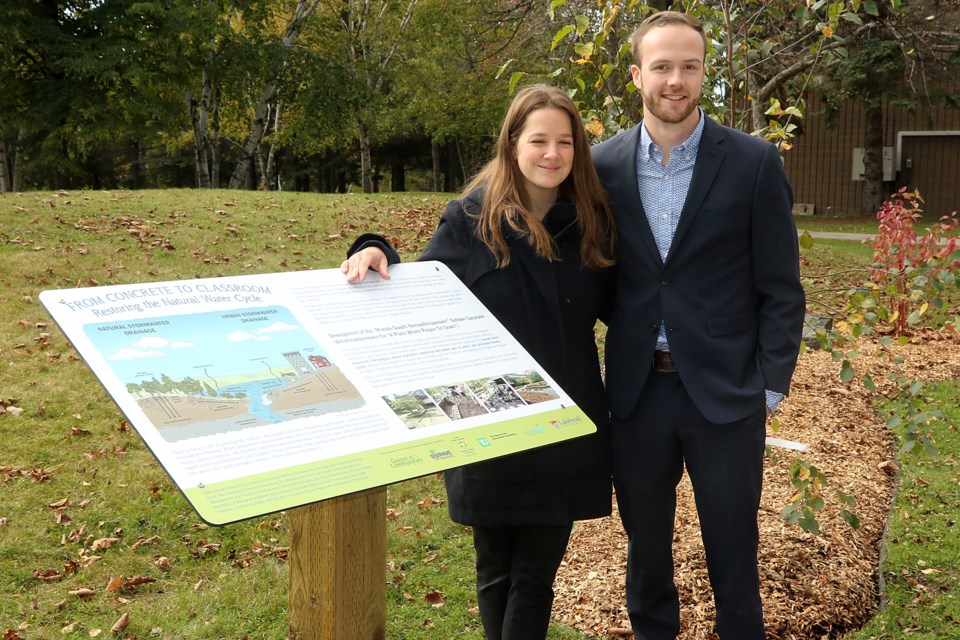THUNDER BAY – More than four decades ago, Joni Mitchell released Big Yellow Taxi, including the lines, ‘They paved paradise, and put up a parking lot.’
Lakehead University has set about doing the opposite, opening an outdoor classroom on Wednesday that helped launch its new sustainability plan.
“It’s actually part of a de-pave paradise event,” said Ledah McKellar, the school’s sustainability co-ordinator. “The general idea of a de-pave event is to de-pave surfaces, so we remove hard surfaces of 100 square metres and replace them with green spaces.”
In this particular circumstance, it’s an outdoor classroom and four demonstration gardens, the space named M’wade Gaazhi Namaadibinaanowin.
“The space is actually nestled within the university’s arboretum, so we wanted to continue the trend of ecological learning by having interpretive signage that will identify the native plants in English, Anishinaabemowin and Latin, as well as identify traditional Indigenous uses of some of these native plants,” McKellar said.
“The idea is we want to cultivate an area where students and the community can learn more about some of our local eco-systems.”
McKellar said the other major benefit of the space is that it allows water to infiltrate the ground naturally, rather than flow quickly from the concrete into nearby lakes and rivers.
“When they flow quickly, they can compound flooding and they can bring contaminants with them. Because we’ve removed a lot of the hard surface, the water is able to now infiltrate naturally, which is the best thing for it.”
The outdoor classroom is the start of the school’s five-year sustainability plan, taking into consideration human and ecological health, social justice and equity, Indigenous rights, secure livelihoods, workplace well-being and leadership for vibrant and resilient communities.
McKellar said the sustainability vision will include a variety of different operations in a number of areas at the university, from operations to academics to planning, administration and engagement.
“So what does that really mean? For example, we’re looking at treating our stormwater better as you see with this classroom space and with our rain garden,” McKellar said.
“We’re also looking at creating more outdoor programming around sustainability. We are looking at having more local food in our dining services and increasing our waste diversion. Those are just a few examples.”
David Barnett, interim provost and vice-president (academic) said initiatives like the outdoor classroom show just how important sustainability is to the university as a whole, where they are educating the leaders of tomorrow and continuing research that impacts people’s lives.
“This is just one example of how we can start that on our own campus,” Barnett said. “We have a number of programs that can use this. It’s a great opportunity for some outdoor learning.”
